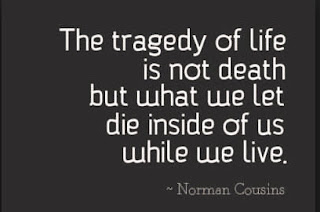A Place for EVERYTHING Stroke and Other TBIs--strokefocus.net
(10,095 readers)
This is the story of amazing Daniel Gu and how he founded Strokefocus.net, the completed website coming in June. It's a touching, almost tear-producing process of his recovery.
Alcohol and Stroke: You May Be Just Asking For It
(8681 readers)
This post created some brouhaha because people took offense that it was directed at them instead of thanking me for the information. Oh, well. No good deed goes unpunished.
The Words I've Been Longing To Hear: An Energizing Visit from the Cable Guy
(8,360 readers)
Don't get any ideas of an intimate nature! We were just having a conversation. That was the first time the cable guy and I spoke without asking me to repeat myself. The post has near-comical elements.
Fatigue and Stroke, aka I'm Hittin' the Wall
(7,838 readers)
The world is filled with acronyms, and this post follows suit. It's called PSF, Post Stroke Fatigue, and explains possible reasons for PSF and the foods that combat it.
How Two Legal Drugs Caused My Hemorrhagic Stroke
(6,717 readers)
The thinking was I was allergic to Heparin which isn't an allergy at all. As a result, the doctor finally took away every blood thinner. The right thing to do? Not really, I learned much later on.
Caregivers Are Suffering; Stroke Survivors Are Suffering: Who Has It Worse?
(5,964 readers)
When it comes to caregivers, they are passionate about the position whether they are burned out or lovingly embrace it. But GFYS? That came from one of the burned out ones.
Can't Do's and Can Do's: A Stroke Survivor's Thoughts
(5,389 readers)
I open up on my limits. Ten for each. If I think about my 10 "can't do" set , I try not to dwell on it. After all, I have 10 "can do" activities that follow.
Thoughtless Person: You Didn't Finish the Book YET? Stroke Survivor: No, Dumbass. Remember? I've Had a Stroke!
(5,339 readers)
Dyslexia and aphasia are only two of the subjects discussed. I read slower now, but I read, and other disorders are included. That title, by the way, happened to me.
Ten Things NOT to Say or Do to a Stroke Patient
(5,274 readers)
Insensitivity is at the heart of this post. After I wrote this post, some other bloggers copied the title. I didn't mind because that's stroke awareness, front and center.
Sex and the Stroke Survivor: A Case of Futility?
(5,046 readers)
Sex is very important to some people, but after they had a stroke, not so much anymore. Tips on how to do more are included with illustrations even. Hoo-hah.






